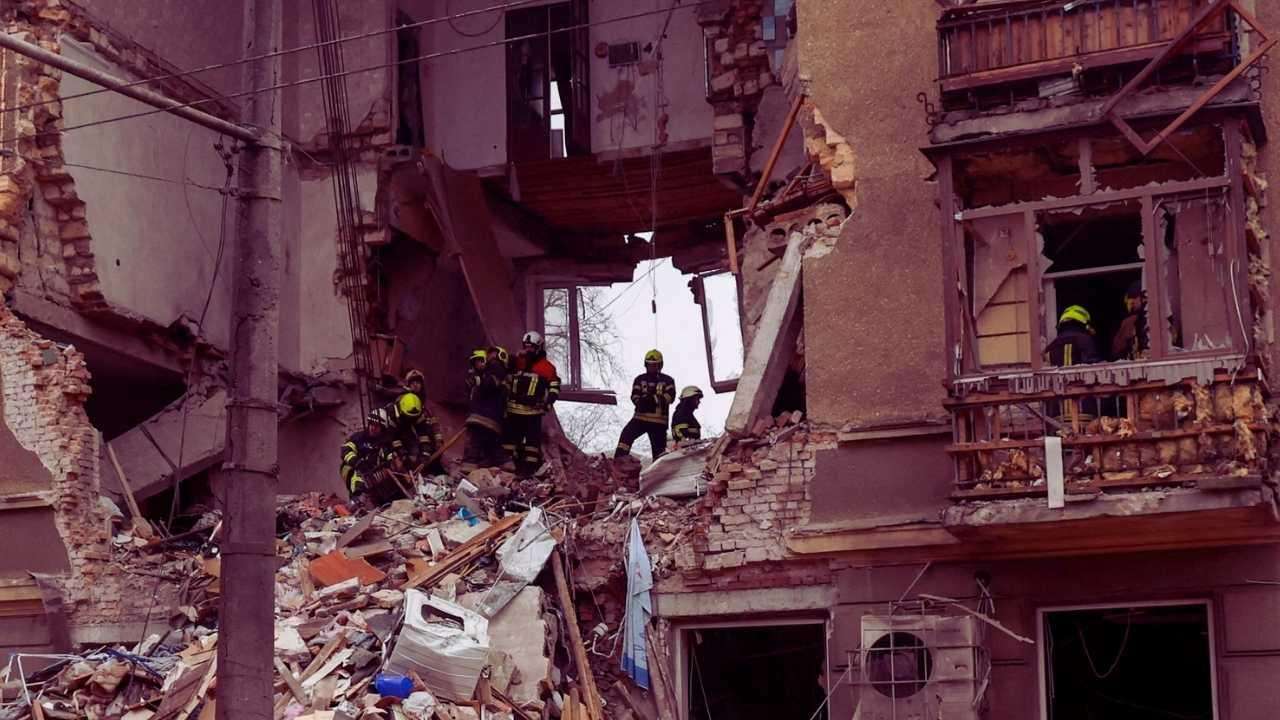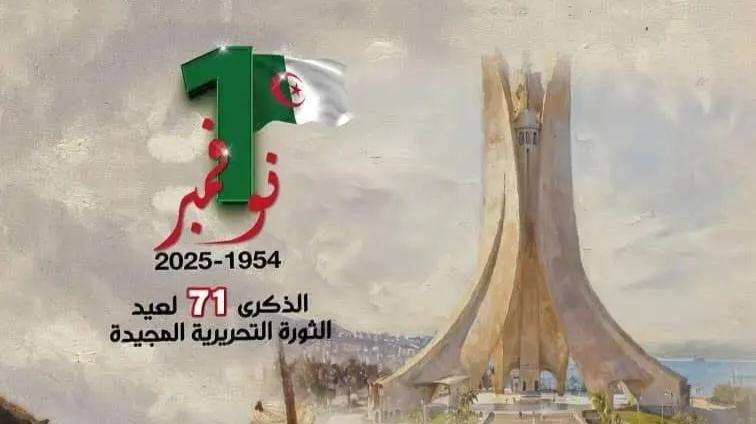The 71st anniversary of the outbreak of the Liberation of Algeria is a milestone that holds profound significance in the history of the country and the broader struggle for independence and self-determination in the 20th century. This anniversary serves as a reminder of the immense sacrifices made by the Algerian people in their fight for freedom from over a century of French colonial rule. It marks the moment in 1954 when the National Liberation Front (FLN) launched its first major attacks against French forces, signaling the beginning of a brutal and transformative war that ultimately led to Algeria’s independence in 1962.
This anniversary is not just a historical commemoration; it is a celebration of the resilience, determination, and collective spirit of a nation that fought for its right to self-govern. It reflects the enduring power of resistance movements across the world, especially during a time when the global landscape was shifting rapidly in the wake of World War II, as many colonized nations began to demand their freedom. For Algeria, the 71st anniversary is an opportunity to honor the sacrifices of those who fought, to reflect on the ongoing journey of the nation, and to acknowledge the enduring legacy of the struggle for independence. Through this commemoration, Algeria not only remembers the historical events of November 1, 1954, but also reinforces its commitment to the values of justice, unity, and the pursuit of a better future for all Algerians. The anniversary provides a moment for the nation to reflect on its past struggles while looking forward to the challenges and opportunities of the future.
The Context of Colonial Algeria
Algeria’s colonial history was marked by violence, exploitation, and systemic racism. French colonial rule in Algeria began in 1830, and over the years, it entrenched deep inequalities. The French settlers, known as "colons" or "pied-noirs," enjoyed privileges over the indigenous Algerian population, who were subjected to harsh repression and disenfranchisement. The economic exploitation, cultural suppression, and forced assimilation policies created deep resentment among the Algerian people, laying the groundwork for the eventual struggle for independence.
The French administration imposed its language, culture, and political structures on the Algerian people, leading to widespread economic and social disparities. While French settlers lived in relative prosperity, the indigenous Algerians were relegated to poverty and subjected to oppressive laws. These imbalances laid the foundation for nationalist movements that sought to reclaim Algeria’s identity and sovereignty.
The Outbreak of the Liberation War
The turning point came on the night of November 1, 1954, when the National Liberation Front (FLN) launched a series of coordinated attacks against French military and civilian targets across Algeria. This marked the beginning of the Algerian War of Independence, a conflict that would last for nearly eight years and result in immense suffering on both sides.
The FLN’s strategy was rooted in guerrilla warfare, relying on both military tactics and diplomatic efforts. They quickly gained support from Algeria’s rural population, whose hardships under colonial rule were now being openly challenged. The FLN's ability to unite the people, despite their diverse ethnic and regional backgrounds, was a testament to the strength of the nationalist movement. Despite the violence and repression from the French military, which included torture, massacres, and large-scale deportations, the Algerian resistance grew stronger, determined to secure the nation’s freedom.
The Role of International Solidarity
The Algerian War of Independence was not only a struggle for freedom within Algeria; it was also a pivotal moment in the global decolonization movement. As European empires began to crumble after World War II, Algeria's war for independence symbolized the broader fight against colonialism. The FLN received support from various countries, particularly from the Arab world and socialist nations, who viewed the Algerian struggle as part of a global movement for justice and self-determination.
The international community's role in the war also proved significant. As the war dragged on, French public opinion began to turn against the colonial conflict, with widespread protests and debates over the morality of the war. The FLN’s efforts in the United Nations and other international forums ensured that the Algerian cause garnered global attention, adding pressure on the French government. Ultimately, after nearly eight years of brutal conflict, the pressure from both inside France and abroad led to the Evian Accords in 1962, which granted Algeria independence.
The Legacy of the Liberation War
The 71st anniversary of the outbreak of Algeria’s liberation struggle is not just a time to reflect on historical victories, but also to acknowledge the lasting impacts of the war on the Algerian people. Over a million lives were lost during the conflict, and many more were physically and emotionally scarred by the violence they endured. The social and political landscape of Algeria was forever changed, as the war ended not only French colonial rule but also centuries of domination and subjugation.
Despite the hardships, the war gave birth to a sense of national pride and identity that continues to shape Algeria today. The struggle for independence remains deeply embedded in the nation’s collective memory, serving as a symbol of resilience and the power of self-determination.
However, the legacy of the war is not without its challenges. Algeria continues to grapple with the aftermath of colonialism, including political instability, economic struggles, and social unrest. While the nation achieved independence, the complex task of nation-building, forging a unified identity, and establishing a democratic and prosperous state remains a work in progress.
Looking to the Future
The 71st anniversary of the outbreak of the liberation struggle serves as both a celebration and a moment of reflection for Algeria. It provides an opportunity to honor the sacrifices of those who fought for freedom and to acknowledge the journey the nation has undertaken since 1962. For today’s Algerian youth, the anniversary is a reminder of their roots and the power of collective action in shaping the future.
While Algeria has made significant strides since gaining independence, it faces new challenges in an increasingly globalized world. Economic diversification, political reform, and youth employment are some of the critical issues that must be addressed to ensure the country’s continued development and stability. The anniversary of the Liberation War serves as a powerful reminder that the struggle for justice, equality, and prosperity is ongoing, and the values that fueled the independence movement remain crucial for the nation’s future.
Conclusion
The 71st anniversary of the outbreak of the Liberation of Algeria is a pivotal moment to reflect on the nation’s past, honor the sacrifices made by those who fought for its independence, and look ahead to the future. It is a reminder that the spirit of resistance and the struggle for self-determination that defined the war for independence are still relevant today. As Algeria continues to navigate the complexities of post-colonial life, the anniversary underscores the importance of unity, resilience, and the ongoing pursuit of justice and prosperity for all Algerians.








.svg)
